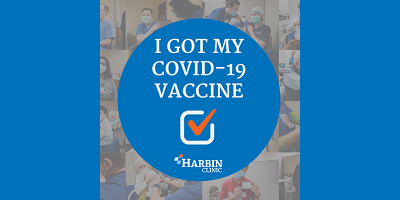What to do if you’ve been exposed to coronavirus

If you’ve been exposed to Coronavirus, you likely have a lot of questions. We’re here to help answer them.
At Harbin Clinic, the safety of our patients and community is our top priority. We recommend following CDC guidelines to quarantine if significant exposures to Coronavirus have occurred.
Quarantine: What is it and why is it important?
Coronavirus is a highly infectious disease that is readily spread between infected and non-infected individuals though respiratory droplets.
When an individual either tests positive or is diagnosed presumptively with the infection in the absence of available testing, they should isolate themselves at home away from others.
Activities outside of the home should be restricted with the exception of receiving necessary medical care.
How long should I quarantine?
The CDC recommends a 14 day self-quarantine for individuals who test positive or for those with significant contact with a positive patient. Once quarantine period has ended and if you do not have symptoms for at least 72 hours, you should follow you doctor’s instructions on how to return to your routine.
When will I develop symptoms?
The average person who becomes infected with coronavirus will develop symptoms between 2 – 12 days with the average person doing so by day 5.
What symptoms should I watch for?
You should monitor yourself for the development of symptoms including fever, cough, shortness of breath, chills, repeated shaking with chills, muscle pain, headache, sore throat, and/or new lost of taste or smell.
What do I do if develop mild to moderate symptoms?
Greater than 80% of individuals who become infected will not require medical care and can recover fully at home. Only those with severe symptoms require ER or Hospital care. If your condition worsens, you should contact your primary care provider who will provide additional direction on next steps.
What if I have moderate to severe symptoms?
If you develop moderate to severe systems or have underlying medical conditions such as heart disease, lung disease, diabetes and high blood pressure, you may be at an increased risk for complications from this infection. You should contact your primary care provider who will determine the best course of action for you at that time. Call ahead to any healthcare facility prior to arrival in order that they might take steps to coordinate your arrival and treatment while limiting unnecessary exposure of others.
These individuals should be monitored closely for progression to more severe symptoms such as worsening shortness of breath. In a certain percentage, individuals may require hospitalization and care with advanced life support measures.
Learn more about how you can stay healthy and prevent the spread of germs at https://harbinclinic.com/coronavirus.

